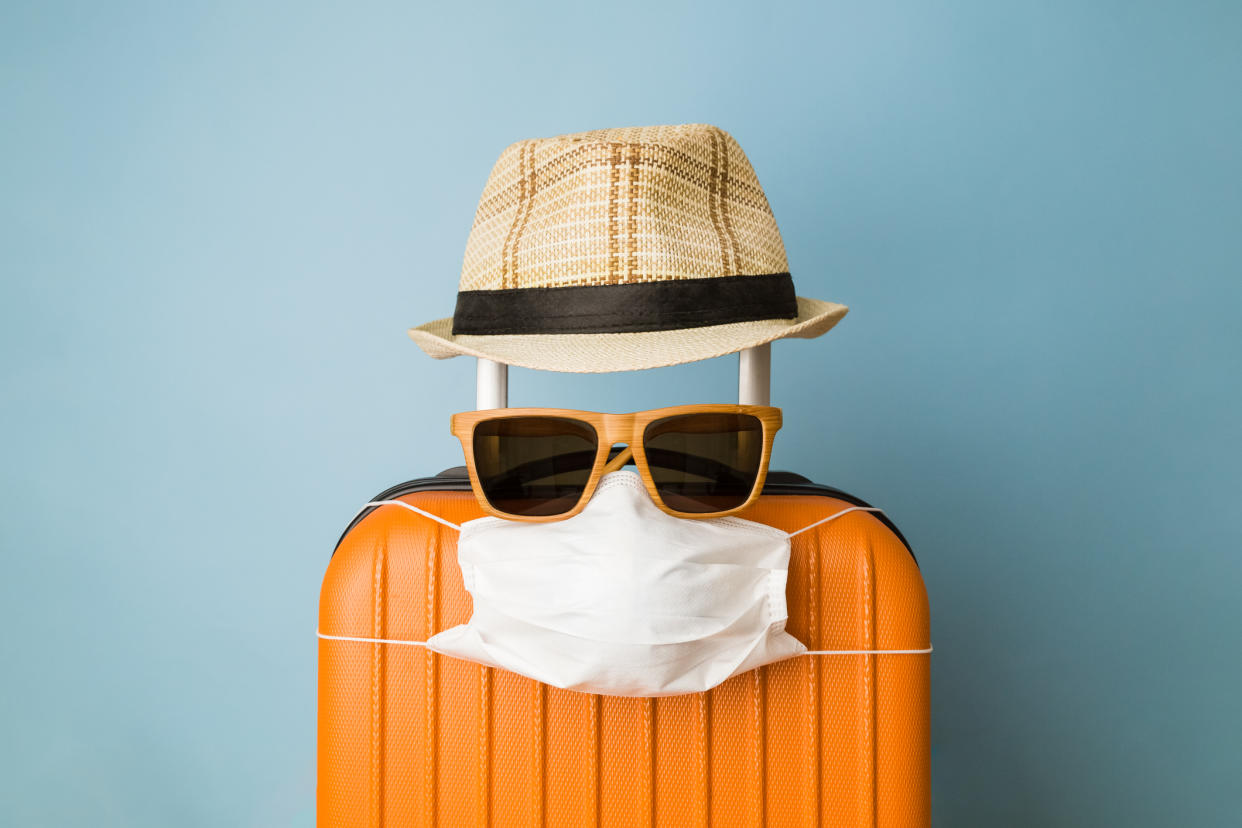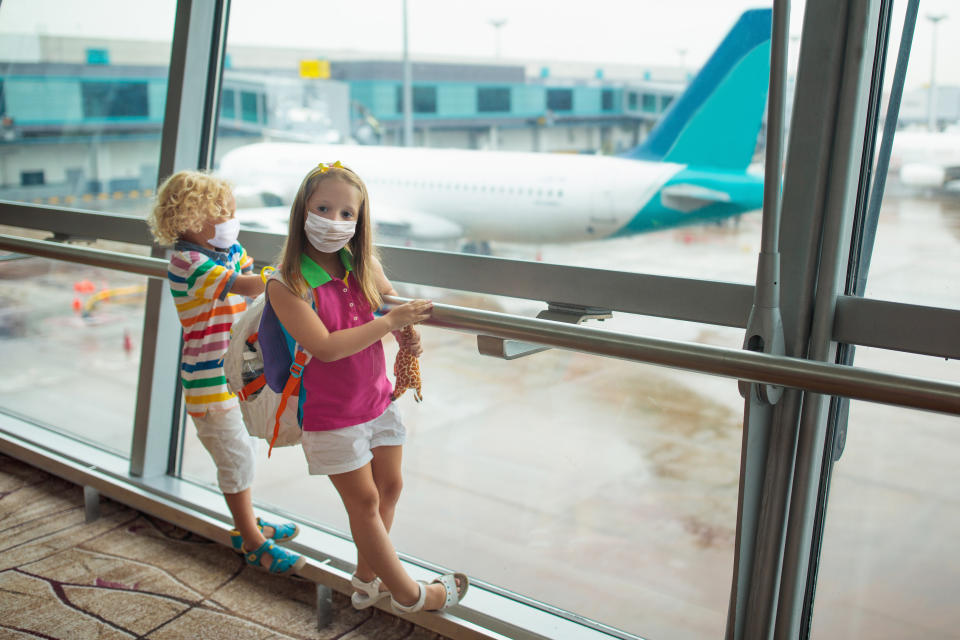Everything you need to know about travelling abroad this summer, following changes to quarantine rules

Back in June when the government announced the introduction of strict travel measures that would mean anyone arriving from abroad would have to isolate for 14 days, we saw our summer holiday hopes fade quicker than our post-holiday tans.
But summer 2020 could well be back on, with the arrival of travel corridors and a long list of countries now exempt from England’s stringent quarantine rules.
From 10 July, anyone arriving from the countries listed will not have to isolate for 14 days on arrival into England.
“The government is satisfied that it is now safe to ease these measures in England and has introduced travel corridor exemptions for some countries and territories,” the new guidance states.
Additionally, the Foreign and Commonwealth Office (FCO), which previously advised against all but essential travel, has now updated its global advisory, exempting destinations that no longer pose an unacceptably high risk for British travellers.
So, suddenly going on holiday abroad is a very real possibility once more.
But before you start packing it’s worth remembering that travel in 2020 is going to look a little different from holidays of old.
Here’s everything you need to know about taking a trip overseas this summer.
Read more: What is the risk of a second coronavirus wave?
Where you can go
From 7 July, the FCO no longer advises against travelling to over 60 destinations across the world.
However, there is also a separate Travel Corridor list, issued by the Department of Transport, of 59 countries that Brits can visit without needing to quarantine on their return.
The lists are a positive move, but there is still some confusion about the rules, as some countries appear on one list but not the other list, and some other countries on the government’s “air bridge” list are not currently allowing UK arrivals.
Lloyd Figgins who is Chairman of the Travel Risk & Incident Prevention Group (TRIP) believes people might be misled by the recent green light Travel Corridor list as they may not realise it only applies to arriving back into the UK from those countries and doesn't take into account the restrictions those countries will have in place when you arrive.
“Whilst this is a welcome step forward in getting overseas travel kick started once again, the system doesn't make it clear that just because a country appears on the list, it doesn't mean that UK travellers won’t be required to quarantine on arrival,” Figgins explains.
“New Zealand is a great example of this as you would still have to quarantine once you get there.
"Even more concerning is the inclusion of countries on the list who currently have a policy that UK travellers are banned, such as Greece. Anyone thinking of travelling still needs to check the entry requirements of the countries on the list to really understand the impact travelling could have on them.”

Read more: One in six parents say school holidays should be scrapped
Will you have to wear a face mask?
Who would have thought that face masks would be as vital to pack in your luggage as suncream? But vital they are.
While each specific country will have different rules and recommendations regarding the wearing of face coverings, it is highly likely you will have to wear one at some point on your trip, so it’s worth tossing some in your suitcase alongside your bikinis.
You’ll find lots of information on local requirements available online at the FCO and it is constantly being updated. For example the travel advice for wearing a face mask in Spain has recently been updated.
Tourists in several popular Spanish holiday hotspots must now wear a face masks at all times when in public, or risk being hit with an on-the-spot fine of €100 (£90).
You may also have to wear a face mask during your journey. Many airlines have measures in place for customers flying with them – so it’s important to check your airlines rules before you fly.
Different airlines have varying levels of enforcement. Some airlines, for example EasyJet, are even saying that they will refuse boarding to passengers who aren’t wearing a face mask.
Which airlines are flying again?
EasyJet has restarted a limited number of flights to European destinations, with all passengers and cabin crew told to wear face masks.
Ryanair has reintroduced 40% of its scheduled flights and is running a limited flight schedule, with mandatory face mask wearing.
British Airways is reviewing its plans to run 50% of its schedule from July.
Read more: What summer holidays could look like this year
Jet2 has also announced a list of holiday destinations they will fly to from 15 July.
In a statement on its website, the holiday firm says it plans to restart flights to quarantine-free countries from 15 July.
Thankfully, many airlines and holiday companies are providing flexible booking terms, allowing you to change your itinerary for free.
So, if you book something and then realise that restrictions make it impossible or difficult for you to go ahead with the flight, you could be able to switch to a future date when, hopefully, restrictions will have changed.
Each airline will have its own policy, however, so be sure to check directly before you book.

What if I don’t want to fly?
Still not keen on the idea of flying? There are options to take the Eurotunnel or ferry to destinations in Europe.
Eurotunnel has declared they are now open for travel to France with shuttles running regularly.
The 35-minute journey provides a contact-free crossing, during which travellers must remain in their car. Refreshments can be ordered in advance to be delivered to passenger vehicles.
The company explains on its website that it has also implemented additional cleaning procedures, including automatic hand sanitisers in passenger areas, regular cleaning of toilet facilities and an increase on the cleaning regimes within the terminals and onboard the shuttles.
P&O and Stena continued to operate passenger services throughout the crisis, some with reduced services, but both are taking bookings now. Currently there are no foot passengers allowed.
DFDS is also taking passenger bookings for its routes, including the Newhaven-Dieppe route.
Brittany Ferries, which operates to ports in Western France, has also now reopened.
Read more: The UK destinations Brits plan to visit for the first time this year amid coronavirus travel fears
But ferry travellers will notice operators have adapted services to provide increased protection, with face masks now compulsory on board, fee-free booking amendments offered by most, reduced passenger capacity and staggered boarding/disembarkation on DFDS services, and vehicle-only sailings on P&O’s Dover-Calais route.
Brittany Ferries is also staggering boarding and disembarkation and is making seat or cabin reservations mandatory.
The industry body Discover Ferries has launched a Ferry Safe campaign detailing the safety measures it recommends due to coronavirus, including enhanced cleaning between sailings and hand sanitisers placed around ships for passenger use.
Some on-board services, such as bars, remain closed, but shops are largely reopening with social distancing requirements in place.
Eurostar is also up and running between the UK, France, Belgium and the Netherlands with a revised timetable.
“Due to the ongoing Coronavirus situation we are operating with a reduced timetable but with restrictions easing, we’re now pleased to serve more destinations and gradually increase the number of our services as follows,” the site explains.
Face masks are mandatory on trains and in terminals, with every other seat left empty on board. Food and drink sales have been suspended.
It is worth noting that to enter France you currently need to fill in a health questionnaire and it is probably a good idea to opt for refundable tickets, if possible.

Will we have to pack differently?
Aside from having to add face masks to your suitcase Nicky Kelvin, Head of Content at The Points Guy UK says there could be changes to the kind of luggage you can take with you on a flight.
“Some airlines are not allowing carry-on baggage and so passengers will need to get used to checking in bags, which may require more thought or organisation,” he advises.
He also suggests some hygiene measures when you get back from holiday.
“When you get home, it's also a good idea to clean all the clothes you had in your suitcase,” he says. “And, because you've likely rolled your wheeled suitcase through dirty streets and over dirty carpets, it is important to use cleaning solution to wipe down the wheels of your suitcase before rolling it into your house.”
What else will be different about travel?
According to Kelvin, some airlines around the world have introduced new seating policies to help with social distancing, such as blocking out the middle seat, or automatic seat allocation by the airline.
“Several airlines have also announced that they’re suspending or cutting down inflight meal and drink service in an effort to cut down on passenger and crew interaction, so it's important to understand what will be on offer from your carrier to avoid being left hungry and thirsty!”
Despite the changes Kelvin believes holidays this year can be a success.
“The world, but particularly Europe, has been opening up significantly in the past few days,” he says. “Travel will not be as we have known it, but that doesn't mean it can’t be enjoyable if the correct precautions are taken.
“Make sure to wear a mask and wash your hands as much as possible, and make sure to listen to the safety measures staff have put in place across airports, train stations, ferry ports and more.”



